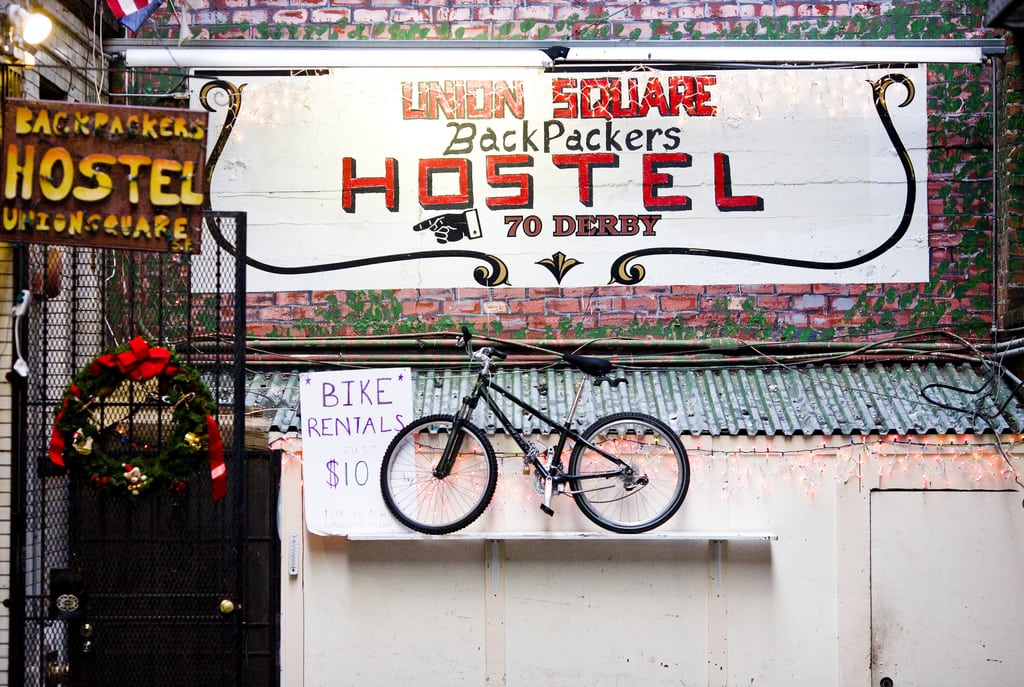Skift Take
Sure, budget travelers have Airbnb as a more affordable lodging option, but what about those who don't want to stay in someone's home? U.S. cities are largely missing out on those visitors who want something half way between a home-stay and hotel experience.
Hostels and the U.S. aren’t terms that often appear in the same sentence and regulatory obstacles hostels face across the country are one of the factors limiting their expansion and popularity.
Hostels are typically a preferred accommodation type for student and backpacker travelers abroad and are common in Europe and Southeast Asia. But it’s difficult to assess the state of U.S. hostels because of their comparatively small market size. Major hotel data and research companies such as STR and PKF don’t track hostels, for example.
But, according to internal data at Hostelling International USA (HI USA), an international hostel chain, about 360 hostels operate in the U.S. Of that number, about 260 call themselves hostels while the others are “hostel-like” and list themselves on hostel booking sites, said HI USA CEO Russ Hedge.
HI USA has 54 U.S. hostels which had a combined 1.1 million overnights last year from 100 countries. Hedge added Los Angeles has the most hostels for a U.S. city (21), closely followed by New York City (20), San Diego (15), San Francisco (13) and Miami and Honolulu each have 11. About 60% of HI USA’s overnights in the U.S. last year were international guests and the remaining 40% were domestic.
“Hostels have their roots in Europe and are promoted by primary and secondary schools there as ideal ways to travel for family and school trips,” said Hedge. “The U.S. does not have the European tradition of embedding hostels in our school system.”
“The challenge with tracking hostel data is that there are a limited amount of hostels in each city and nobody wants to share their data because it’ll become apparent what their business model is like and how they’re performing,” said Aaron Chaffee, HI USA’s vice president of hostel development. “With hotels, the data is so blended that no one can look at it and suggest that they understand the dynamics of an individual property.”
There’s also no cookie-cutter definition for hostels apart from the general consensus that they’re usually more affordable than hotels and often have dormitory-style accommodations with multiple beds per room, Hedge and Chaffee said.
“Almost in every jurisdiction in the U.S. there’s nothing that’s a classification of a hostel,” said Chaffee. “There’s not a playbook to follow, so a lot of developers will opt for building something like a hotel that they’re familiar with rather than figuring out hostels.”
It’s that lack of clarity that’s partly to blame for hostels’ slow growth in the U.S., as many aren’t sure how local zoning laws apply to hostels. New York City, for example, bars hotels from accepting more than three separate, simultaneous bookings for the same room for stays of less than 30 days, which creates a burden for the traditional hostel model.
Proposed legislation would amend that law for New York City by allowing more people to stay in the same room. Similar legislation is also currently up for debate in San Francisco.
What About Airbnb?
Hostel guests arguably share some of the same desires as Airbnb guests: Both may look for more affordable accommodations that let them meet and interact with locals and other travelers.
But do hostels feel Airbnb is stealing away their potential?
HI USA says Airbnb’s popularity actually helps raise awareness for its business. While Airbnb, he says, helps bring travelers closer to local communities, hostel guests want to meet people from different cultures around the world, something an Airbnb stay doesn’t provide on as large a scale.
“With all this buzz around the sharing economy, and hostels have been the epitome of the sharing economy for the past 80 years, we’re seeing a lot of interest particularly from millennials in the U.S. who are keen to have these shared accommodation experiences that hostels can offer,” said Hedge.
What’s also interesting: HI USA claims its sole New York City 650-bed hostel generated $72.3 million in economic impact last year for the city from more than 200,000 overnights. Separately, Airbnb estimated it generated a $632 million economic impact from its 416,000 guests in the city last year. If their methodologies roughly matched up, then that would mean one hostel generated more than 10% of Airbnb’s total impact in the city.
So there is plenty of potential tax revenue and the demand is there for tourists wanting to stay in hostels who couldn’t visit large U.S. cities otherwise.
HostelWorld, a global hostel booking site, estimates that New York City misses out on an average of 200,000 visitors per year because of low hostel supply.
Have a confidential tip for Skift? Get in touch
Photo credit: The Union Square Hostel in Downtown San Francisco. Thomas Hawk / Flickr
